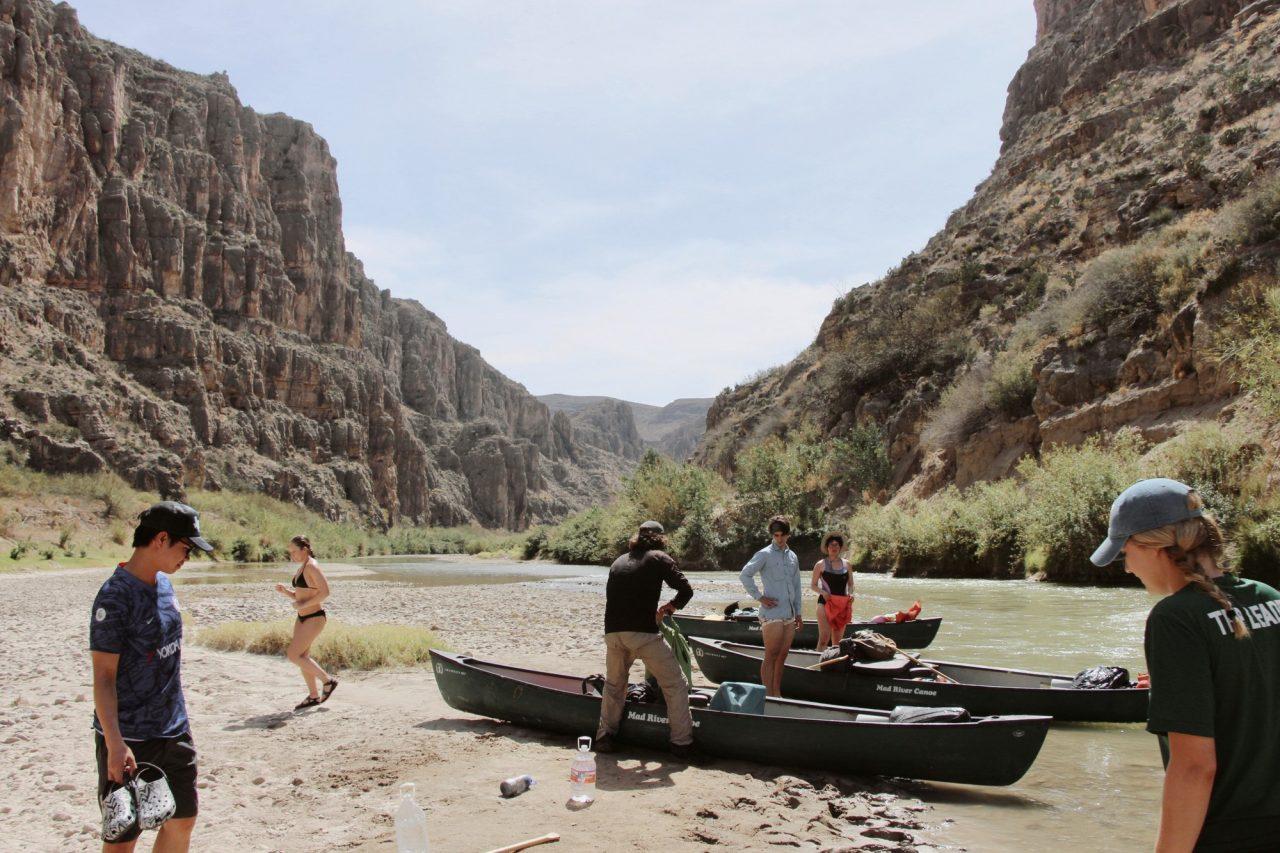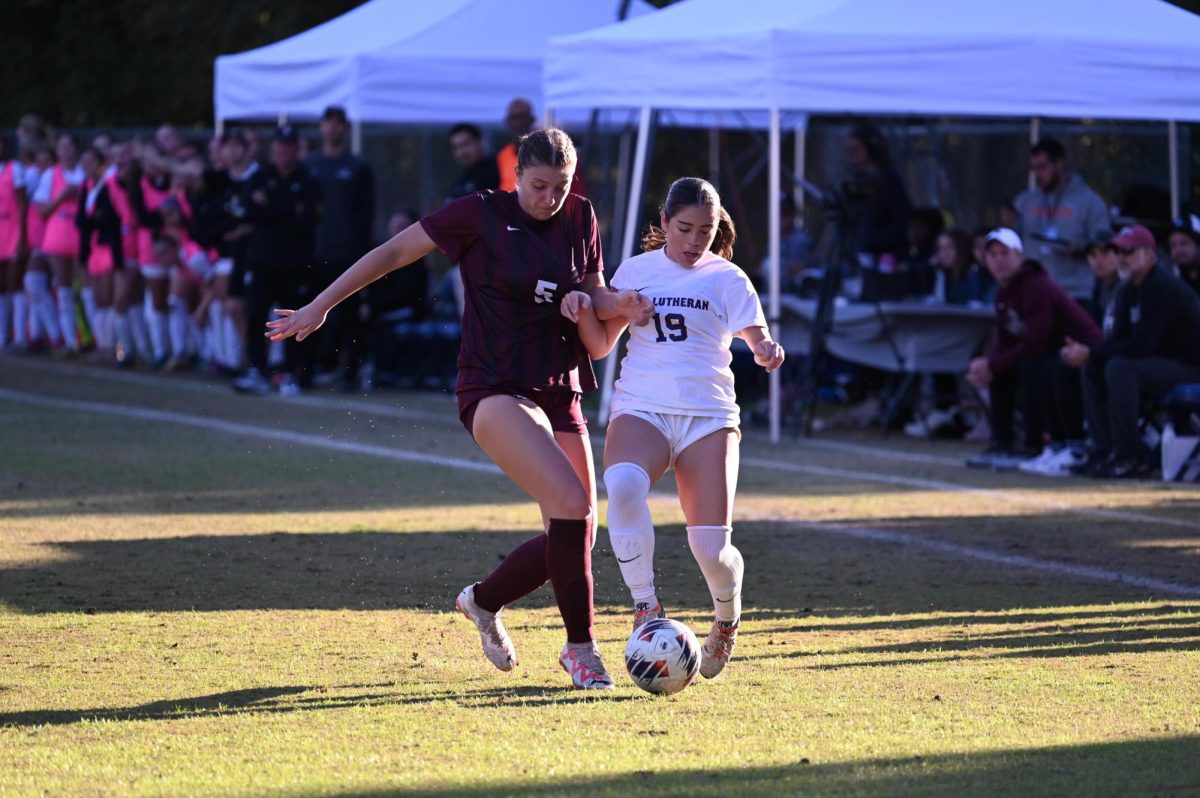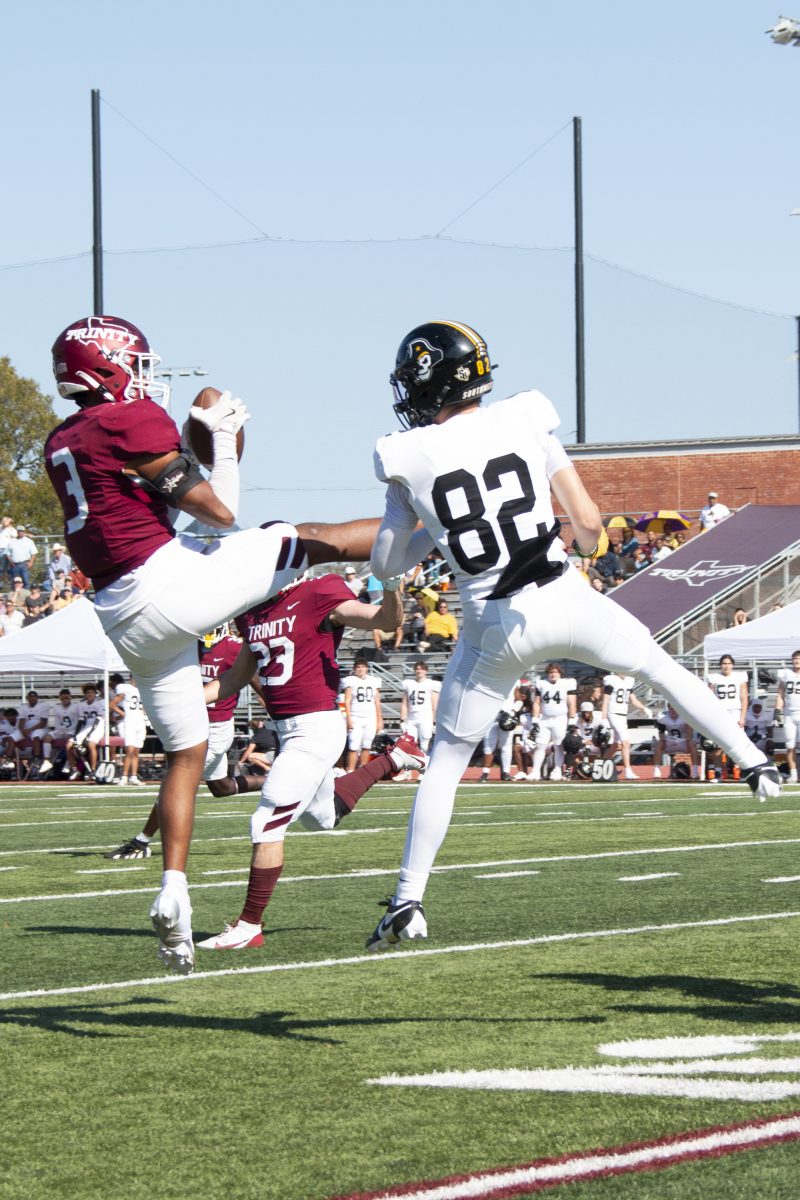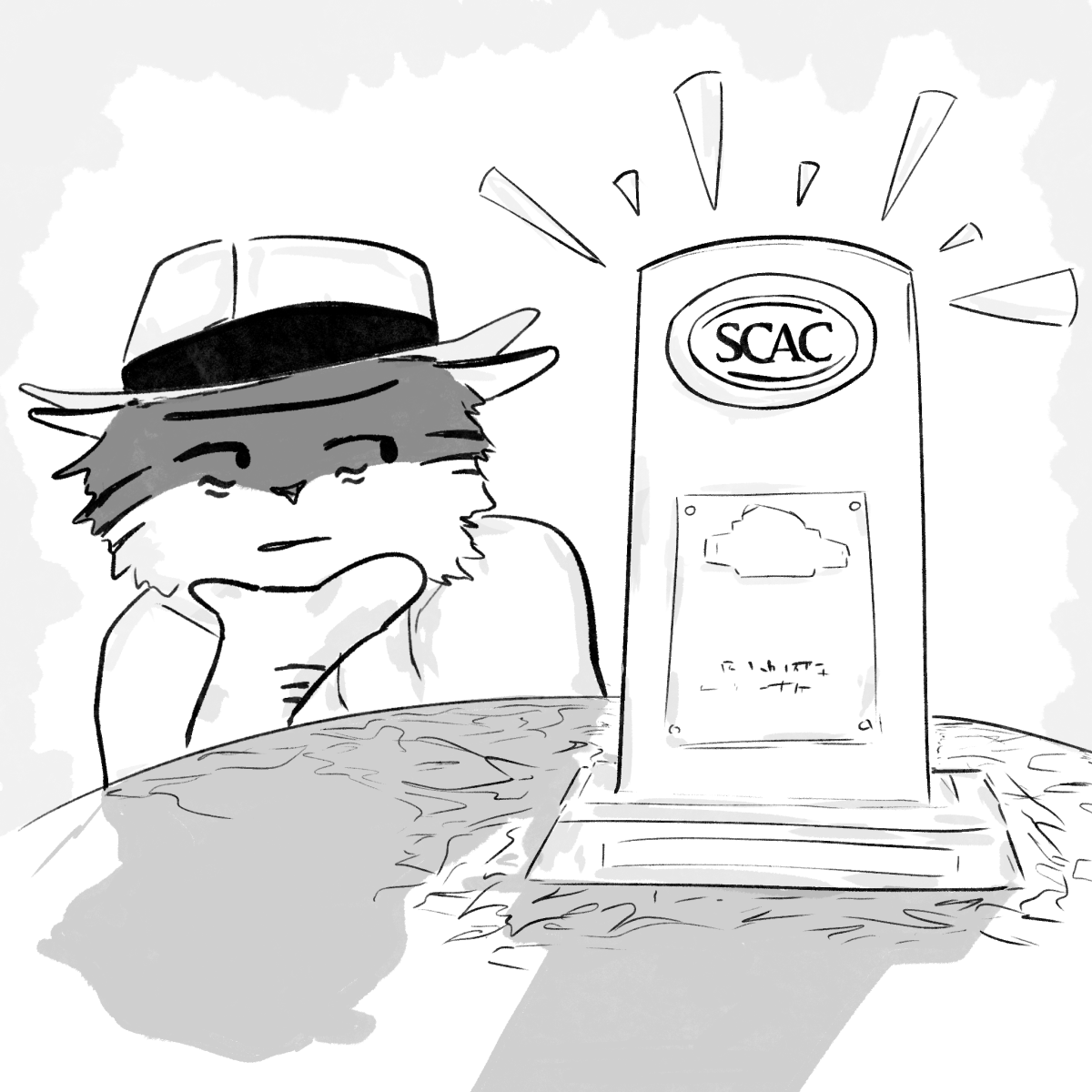Photo provided by Madeline Walshak
On Wednesday, March 11, Outdoor Recreation trip leaders and fellow students returned to campus from the annual five-day OREC Spring Break trip. That same day, the university announced that the campus would close for the remainder of the spring semester.
“We all got the email of Trinity’s closing while road tripping home in the van through West Texas. It was a rattling contrast to go from laughing and reminiscing about the trip to everyone having to process their emotions and reactions in a van full of people that were strangers only five days prior,” said senior trip leader Madeline Walshak.
Although campus closure interrupted OREC plans for upcoming trips, including a trip to Devil’s River over the Easter weekend, it had no effect on the Spring Break trip to Big Bend National Park. The trip is a long-standing OREC tradition and featured an itinerary full of outdoor activities, like hiking, but the highlight of the trip was the three straight days of canoeing on the Rio Grande through Boquillas Canyon. According to junior trip leader Jackson Braley, starting on the third day of the trip, students would spend the entire day in a canoe until the group got tired in the evening and picked out a flat piece of land on the river bank to set up for the night.
Students who decided to participate in the trip to Boquillas Canyon signed up for a challenging week, according to first-year Patrick Hurley who traveled with OREC to Big Bend in a similar trip over fall break, but opted not to join the canoe trip in the spring.
“The OREC trips are always a lot of fun, organized very well by people who know what they’re doing. However, Big Bend is not exactly the place to head if you’re just looking to chill for the break. [It’s] very physically and mentally tiring,” Hurley said.
The four trip leaders, sophomore Cannon Wilson, junior Gemma Smith, Braley and Walshak, started meticulously planning the trip a year in advance. According to Braley, the trip leaders plan out every step of the process starting with calling the shuttle service and making sure that a rental van will be available for the trip.
“Renting the van through the university, that’s step one. I think we rented the van for this trip like last year. We’ve already rented the vans for next Spring Break,” Braley said.
In addition to preparing transportation well in advance, the trip leaders must get a special-use permit through the national park, break down the trip’s finances and create the itinerary. Figuring out the finances and budget of the trip is integral to determining the trip’s cost for participants and the cost to participants is an integral part of OREC’s mission, according to Braley.
“The whole point of OREC is to offer outdoor activities that aren’t normally accessible to everybody at an extremely reduced price, and we do that through getting money from the University, through SGA, and we charge participants a little amount of money to make our trips not completely out of our pocket,” Braley said. “The money that we charge participants goes right back into our budget so that we can lead more trips instead of running out of money quickly and only getting to go on a few trips per semester. We usually charge a very cheap charge relative to the trip that we do, if you were to conduct that trip on your own outside of the school. That has proven to be extremely beneficial for a lot of people to get outside and have those first camping experiences.”
As OREC facilitates first-time campers with little to no wilderness experience, there are safety measures in place. According to Walshak, the two big safety precautions are wilderness first aid certification and satellite phones.
“All the trip leaders are wilderness first aid certified, and so that covers the low-grade scale of minor bumps and bruises, small injuries. We also do have larger emergency protocols in place if things were to happen. Always on our trips we carry a satellite phone with us because we don’t have any service, we don’t even bring our phones with us, but it connects to satellite and you can telephone the park rangers and let them know your coordinates and they’ll find you. It takes a minute and I’ve actually had to use it once before, but we all know how to use it and it’s the extreme case emergency protocol,” Walshak said.
OREC also provides equipment for their participants, according to Braley, as well as any individual on campus looking to have an outdoor adventure on their own. The money earned from equipment rentals goes directly into the OREC budget to fund the many trips organized throughout the school year.
“We offer everyone who comes a tent, a tarp, a sleeping bag, a ground pad, if they want their own backpack, like packing backpack for luggage, specifically for a trip like this all you need is a big duffel to stick in a canoe, but if they don’t have a sturdy outdoor duffel they can borrow a backpack from us,” Braley said. “We have a huge gear set with lots of gear that we provide participants for our trips. Also anyone from the university is welcome to rent our stuff if they want to go and do their own stuff. They just come to us, rent a backpack for a few dollars per day, rent a sleeping bag, take it and do their own stuff.”
Whether participating in an overnight trip or a day-trip activity, OREC provides organized, safe exploration for both outdoor aficionados and those with no exposure to the elements. Hurley said it best:
“It depends on what you are looking for … If you want adventure then it’s perfect for you.”








